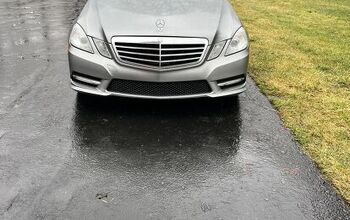In-Car Black Box Data Recorders: Who Knew?
According to the National Highway Traffic Safety Administration, most new cars contain data recorders. While the information captured by the box (speed, direction, etc.) could work in your favor after an accident, things could just as easily go the other way. The American Civil Liberties Union (ACLU) gets it, calling data recorders the “spy in your car.” According to the ACLU’s privacy director in Seattle, "It's my information not public information." Insurance companies and the police beg to differ. While that battle plays out, the public at large remains ignorant of their hidden homie. “Not one driver I interviewed knew they had a silent witness on board,” says KOMO TV reporter Michelle Esteban. As of 2011, automakers must notify car owners they’ve got a flight recorder on board. Be sure to check page 374 of your owner’s manual.
Glenn is a baby-boomer, born in 1954. Along with his wife, he makes his home in Connecticut. Employed in the public sector as an Information Tedchnology Specialist, Glenn has long been a car fan. Past rides have included heavy iron such as a 1967 GTO, to a V8 T-Bird. In between those high-horsepower cars, he's owned a pair of BMW 320i's. Now, with a daily commute of 40 miles, his concession to MPG dictates the ownership of a 2006 Honda Civic coupe which, while fun to drive, is a modest car for a pistonhead. As an avid reader, Glenn enjoys TTAC, along with many other auto-realated sites, and the occasional good book. As an avid electronic junkie, Glenn holds an Advanced Class amateur ("ham") radio license, and is into many things electronic. From a satellite radio and portable GPS unit in the cars, to a modest home theater system and radio-intercom in his home, if it's run by the movement of electrons, he's interested. :-)
More by Glenn Swanson


































Comments
Join the conversation
jthorner: Speaking of which, can someone point out the Right to Privacy in the Constitution of the US? As far as I can tell, it is one of those “rights” which has been pretty much made up. You are correct to the extent that by reading the plain language of the Constitution one finds nothing verbalizing: "the right to privacy shall not be violated." The right to privacy is an implied right found in our Constitution as interpreted by the Supreme Court in cases like Roe v. Wade... One must realize that our constitution is not what is on that piece of parchment in Washington DC... it is really whatever the Supreme Court says it is. If you want to call this "making up rights" then so be it, but regardless of the terminology, it is the law.
Turkeey... you are absolutely correct. But it doesn't help that the courts have also consistently ruled over the years that we do not enjoy the same implied level of privacy rights in our vehicles as we do in our homes. For example, it's a lot easier in a legal sense for cops to search your car for, say, drugs than it is for them to gain access to your home to search for same. I can see where this argument is headed just by taking an anecdotal look at the exchanges on these boards. There will always be the civil libertarians who are prepared to accept a higher level of personal risk in order to preserve personal rights. And there will always be those who are prepared to surrender rights in exchange for perceived security and "protection" - or to maintain order. As for me, I side with Bejamin Franklin, who said (and I hope I don't destroy this quote even if it's not word-for-word): Any society that would give up a little liberty to gain a little security will deserve neither and lose both.
jthorner quoted and wrote: "“until you realize that the vast majority of automobiles are being operated outside of the law every day.” And how did this become the accepted norm? It was not always that way." Well, jthorner, I can't tell you at what date it happened, but I can tell you when it wasn't so. I work with old-car information every day, and was reading a reprinted car-test of the 1956 Continental Mark IV (it was not sold as a Lincoln - Continental had become it's own division within Ford for about 18 months). The magazine editor - in Chicago - told the testers to drive the car to New York City on the then-new expressways, and obey the speed limit all the way. They drove and wrote about the car and journey, and it was fascinating to realize that over all those miles, they were passed by only a handful of cars - about a half dozen - on a busy expressway between two major cities in our fine country, on a holiday weekend in 1956. Until they got to the New York City area, and then all bets were off; they were passed by speeders there 3x more than the rest of the entire journey. Now, if you were to drive the same basic route - Chicago to New York City - 51 years later, I can assure you that you would be passed by the number of cars which passed them in the entire journey, in about 2 minutes - if you drove the speed limit. So, indeed, we know that we have become a nation of scofflaws - that in our grandparent's generation, it was honorable to obey rules - including rules of the road, pay (then obviously low and relatively fair) taxes, and so forth. I think it's beyond the scope of TTAC to further expound on what happened to our nation, however, any Christians out there can have a read here and it will clarify things for you. For non-Christians, it will only appear to be nonsense. http://www.michnews.com/artman/publish/article_17870.shtml
Not to change the subject, but...Can a vehicle owner download all this information; speed, distances, etc. to make a more informed decision about the next car he or she buys. For example, could a person figure out if a hybrid would be beneficial to him because of his usual speeds and distances. For that matter, what size or type of engine, final gear ratio or type of trasmission is best suited for that person's usual driving needs. This information could be extremely useful when purchasing a car or truck.